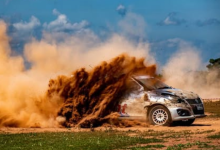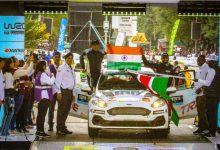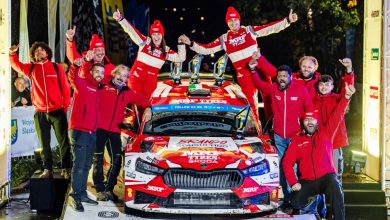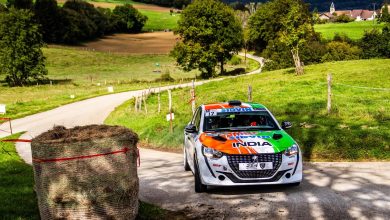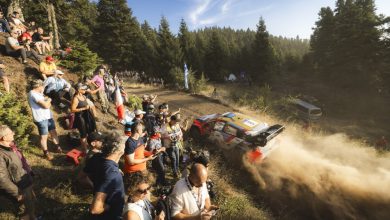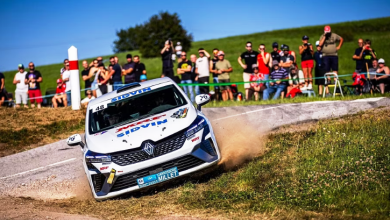WRC returns to gravel stages: Rallye Deutschland
After four consecutive gravel rallies, the FIA World Rally Championship contenders return to asphalt competition for the ninth round of the series. Rallye Deutschland is regarded as one of the trickiest sealed surface events, largely due to the variety of different roads and potentially inclement weather that can make tyre choice such a gamble.
The event was first held in 1982, running as part of the FIA European Rally Championship, and was included in the WRC in 2002. It provides a complete mix of conditions for the crews with narrow and twisty stages in the vineyards, daunting concrete roads in the tank training grounds at Baumholder, as well as more flowing country roads around the Mosel valley. The level of concentration and stamina is high and, if the weather conditions change through the day, the work of the route note crews permitted on asphalt events is even more critical. Running ahead of the competitors, these crews relay the most up to date information about road and weather conditions to their team, helping to provide an accurate assessment of what to expect.
Thierry Neuville continues to head the Championship standings, he and arch-rival Sébastien Ogier split by 21 points going into an event where road-sweeping duties will not be a factor. After his impressive victory in Finland, Ott Tänak also made inroads on the Championship leaders, but the Estonian remains focused on maximum rally-by-rally points before thinking about a challenge for the title. Hyundai dropped only a handful of points to M-Sport Ford in Finland and continue to lead the Manufacturers’ Championship. However, after a double podium finish last time out, Toyota has significantly closed the gap to M-Sport Ford, just one point separating the two. The FIA WRC 2 Championship contenders are also back in action, an impressive 19 crews registering for this event. Series leader Pontus Tidemand again sits out this round, but his nearest rival, asphalt expert Jan Kopecký, will be looking to head a strong field and take maximum points to retake the lead in this hotly contested series. There is also a tight battle in the FIA WRC 3 Championship, which is currently being led by Jean-Baptiste Franceschi who has not nominated this event as a points-scoring round.
THE 2018 ROUTE
The area around St. Wendel takes centre stage for the start and finish ceremonies and an all-new super special stage opens the action on Thursday evening. Friday heads into the vineyards for two identical loops of three stages, the opener – Stein und Wein – not included in the itinerary since 2015. Saturday’s stage distance, at 150.12 kilometres, makes up nearly 50% of the entire competitive route and takes the contenders into the feared military camp of Baumholder where avoiding the massive hinkelstein kerbs, which are designed to keep tanks on the road, adds to the challenge. The day also includes two runs through the longest stage of the event, Panzerplatte. Sunday is back to the scenic roads in the Mosel vineyards for three stages, one of which is repeated. The final Power Stage takes the crews to Bosenberg, which has also not been run since 2015. The podium and prize-giving will then take place in St. Wendel.
Three stages will be broadcast live on television: SS1 on Thursday, SS12 on Saturday and the closing Power Stage. All stages are however available live on WRC All Live on the WRC+ platform.
ends
